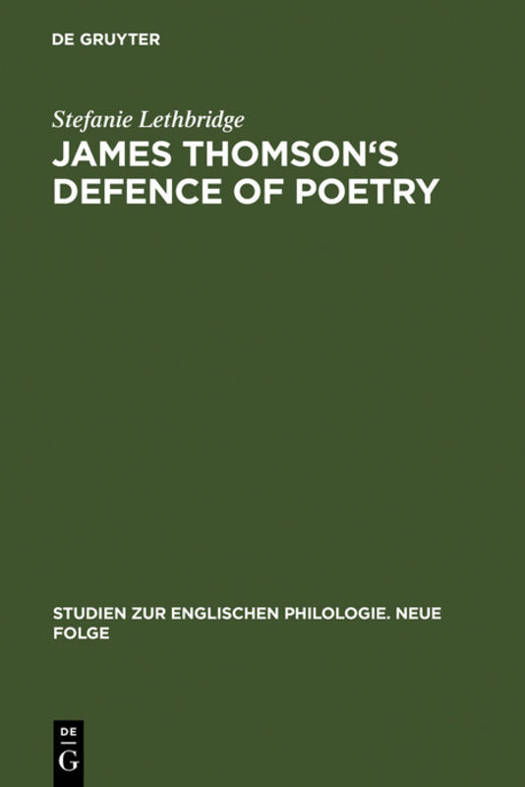
- Retrait gratuit dans votre magasin Club
- 7.000.000 titres dans notre catalogue
- Payer en toute sécurité
- Toujours un magasin près de chez vous
- Retrait gratuit dans votre magasin Club
- 7.000.0000 titres dans notre catalogue
- Payer en toute sécurité
- Toujours un magasin près de chez vous
Description
This study presents a contextual and intertextual reading of James Thomson's (1700--1748) poem »The Seasons«, taking into consideration some of the presuppositions and habitus of the text's cultural community and the function of the poem's many intertextual allusions. Contemporary assumptions about processes of perception, reading and the practice of virtue call for an approach to the poem that takes literary pre-texts into account. An intertextual reading reveals »The Seasons«, though heterogeneous on its surface, as coherent in its cultural functionality: It aims to train readers into virtuous habits and asserts the powers of poetic discourse as a culturally relevant force especially in relation to the discourse of natural philosophy. With the emergence of natural philosophy as a cultural activity of considerable market value, poetry had to legitimise itself as a culturally relevant pursuit. An analysis of the poem's intertext, in particular allusions to Virgil, Ovid and Milton, but also to genre conventions such as pastoral, romance, sermon and panegyric, uncovers textual strategies that attempt to re-legitimise poetry on the one hand by transposing scientific method into a poetic environment. On the other hand, the text demonstrates, using its intertext, that poetry has powers which reach beyond the rational and empirical agenda of natural philosophy and that poetry has a distinctive cultural function as a provider of vision, insight and moral knowledge.
Diese Studie legt eine historisch kontextualisierte Interpretation von James Thomson's (1700--1748) Gedicht »The Seasons« vor, die Präsuppositionen und Habitus zeitgenössischer Leserschaft sowie dieFunktion seiner zahlreichen intertextuellen Anspielungen mit einbezieht. Diese Lesart erhellt »The Seasons« als einen, trotz heterogener Textoberfläche, in seiner kulturellen Funktionalität kohärenten Text. Die Analyse des Intertexts deckt Textstrategien auf, die den dichterischen Diskurs insbesondere in Relation zum neu privilegierten Diskurs der Naturphilosophie als kulturell relevante Kraft relegitimieren.
Spécifications
Parties prenantes
- Auteur(s) :
- Editeur:
Contenu
- Nombre de pages :
- 287
- Langue:
- Anglais
- Collection :
- Tome:
- n° 38
Caractéristiques
- EAN:
- 9783484450387
- Date de parution :
- 08-07-03
- Format:
- Livre relié
- Format numérique:
- Genaaid
- Dimensions :
- 156 mm x 234 mm
- Poids :
- 580 g

Les avis
Nous publions uniquement les avis qui respectent les conditions requises. Consultez nos conditions pour les avis.






